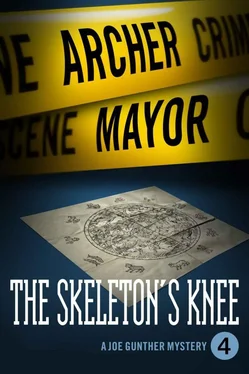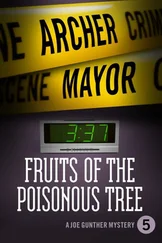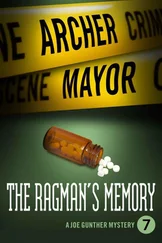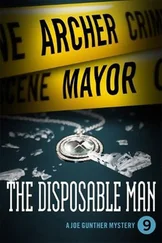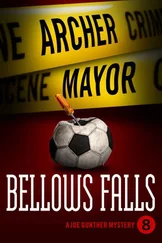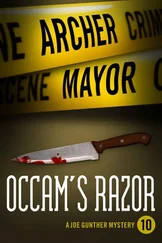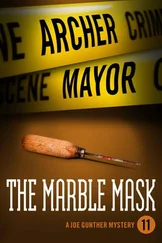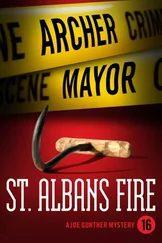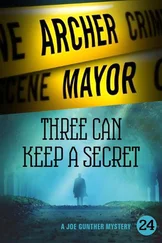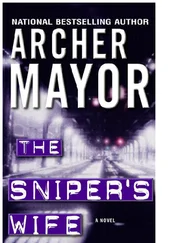Archer Mayor - The Skeleton's knee
Здесь есть возможность читать онлайн «Archer Mayor - The Skeleton's knee» весь текст электронной книги совершенно бесплатно (целиком полную версию без сокращений). В некоторых случаях можно слушать аудио, скачать через торрент в формате fb2 и присутствует краткое содержание. Год выпуска: 1993, ISBN: 1993, Издательство: MarchMedia, Жанр: Полицейский детектив, на английском языке. Описание произведения, (предисловие) а так же отзывы посетителей доступны на портале библиотеки ЛибКат.
- Название:The Skeleton's knee
- Автор:
- Издательство:MarchMedia
- Жанр:
- Год:1993
- ISBN:9781939767042
- Рейтинг книги:3 / 5. Голосов: 1
-
Избранное:Добавить в избранное
- Отзывы:
-
Ваша оценка:
- 60
- 1
- 2
- 3
- 4
- 5
The Skeleton's knee: краткое содержание, описание и аннотация
Предлагаем к чтению аннотацию, описание, краткое содержание или предисловие (зависит от того, что написал сам автор книги «The Skeleton's knee»). Если вы не нашли необходимую информацию о книге — напишите в комментариях, мы постараемся отыскать её.
The Skeleton's knee — читать онлайн бесплатно полную книгу (весь текст) целиком
Ниже представлен текст книги, разбитый по страницам. Система сохранения места последней прочитанной страницы, позволяет с удобством читать онлайн бесплатно книгу «The Skeleton's knee», без необходимости каждый раз заново искать на чём Вы остановились. Поставьте закладку, и сможете в любой момент перейти на страницу, на которой закончили чтение.
Интервал:
Закладка:
The other sanitation question I had was answered in a far corner of the greenhouse. Lurking among the overhanging plants, I discovered what functioned as a toilet-an earth-colored, seat-shaped contraption that I guessed was half old-fashioned outhouse and half highly engineered recycling device. Whatever it was, its function was obvious and its setting quite soothing.
I left the greenhouse to go to the bookshelves inside. Having seen how Fuller had pampered himself physically, I was all the more curious to find out how he’d entertained his mind.
Books, unlike health food, were something I could gauge with a certain confidence. Gail Zigman, my friend and lover of the past twelve years, proclaimed my appetite for reading to be as voracious and eclectic as my taste for bad food was predictable and self-destructive. It struck me as ironic, therefore, that the reverse held true for Fuller. His collection of books was surprisingly mundane.
Not that his library consisted of trashy beach novels. In addition to the Mark Twain I’d dug out of the red knapsack earlier, I found several of Twain’s other works, along with samplings of Hemingway, Fitzgerald, Faulkner, Wharton, Poe, Hardy, Dostoyevsky, and a dozen others, all of whose last names alone were sufficient to identify the authors. But the actual titles were not always representative of the author’s best work. The Adventures of Huckleberry Finn was missing, for example, and What Is Man? and The Mysterious Stranger were parked side by side.
Still, the quality and diversity of the books was only part of the collection’s oddness. My own books were a jumble of mysteries, histories, novels of dubious merit, a couple of volumes on carpentry, old texts from college, police manuals, and even an abysmally written but stimulating work of pornography I’d once confiscated from a ten-year old. I suspected my library was like most people’s, built over decades, reflecting varying interests.
Abraham Fuller’s, by contrast, looked like the offerings of a low-rent book club specializing in high-profile modern novelists, and while some of the volumes were paperbacks, a few bound in leather, and some looked on the verge of collapse, others had never been opened. And all of them were shelved in alphabetical order by author.
Had Fuller been genuinely interested in his reading? Or was this home-built “collection of the masters” another task he’d set himself to keep on the straight and narrow, another form of self-discipline?
I shook my head at the track my own mind was taking. I needed more than an odd assortment of books, a fetish for neatness, and an obsession for gardening and home cooking to draw any accurate conclusions about the man who’d lived here. And that, in fact, was about all I had so far. Aside from the strange chart, I still hadn’t discovered a single personal document.
Which brought me back to the last place Fuller had occupied in the house.
I’d thought about his days-long ordeal on the floor quite a bit since I’d first heard Breen describe it. Indeed, my initial curiosity had focused on Fuller’s mobility: Could he have crawled somewhere in order to fetch his red bag during the five minutes the Rescue crew was outside? Breen had doubted it-such mobility would have allowed Fuller to avoid lying in his own waste. On the other hand, if a trip to the toilet, far off in another room and down a flight of stairs, might have been impossible, a short slide across the smooth floor-given the proper incentive-might not.
It was a reasonable enough assumption, I thought, and it implied a hiding place in the immediate vicinity. I pulled the rug away, hoping in vain that a trapdoor would theatrically appear. The boards were tightly joined, and the small cracks between them were packed with the microscopic dirt that even the most dedicated housekeeper can’t remove.
I sat back on my heels and looked around. Presumably, Fuller had stayed on the rug, expecting either to die or to recover on his own. The arrival of the ambulance, however, had prompted him to bear the increase in pain, move to where he kept his pack, and then return to the rug in order to cover his tracks.
I didn’t want to sell Breen short. He’d been a paramedic for years and had developed a pretty keen eye for other people’s pain tolerances. If Fuller had pulled the wool over his eyes, it had been only because the red pack’s hiding place was nearby.
My eyes traveled across the floor to the first likely spot: a freestanding counter opposite the kitchen sink, topped by an oversized chopping block that hid a large, now rank-smelling garbage pail. I walked over to it and tried to shift the counter, to no avail. I then moved the pail and examined the floor, checking the interior recesses of the counter. I found no signs of either a hiding place or a secret latch that might reveal one.
Disappointed, I continued on my miniature voyage from where the rug lay in a heap, imagining Fuller pulling himself across the floor, grimacing in pain, intent on his goal. Like a navigator on the sea, I sought out the next available landfall, turning to the kitchen counters lining the wall.
I worked methodically, figuring that Fuller’s obvious meticulousness would extend to how well he hid his most private belongings. I pulled out drawers, checked for cavities under the counters, and knocked against the back walls, listening for hollowness, and finally, under the sink counter, I came up with something.
Under normal circumstances, I would have missed it. The bottom of the cabinet under the sink had been lined with tile, presumably to combat the mildew and rot that normally accumulate there. Where most people put down linoleum for the same purpose, Fuller-typically, I now thought-had gone the extra distance. What caught my eye, however, wasn’t the craftsmanship but the fact that the sponges, brushes, bottles of biodegradable soap, and whatnot had all been shoved messily to one side, leaving half of the tiled surface clear.
It took me a while to find the catch, back behind the front brace into which the cabinet hinges had been screwed. In fact, I had to crawl half into the narrow space before I could even see it. But once discovered, I found it smooth and easy to operate. With a click, the uncluttered part of the tile flooring swung down like a trapdoor, revealing a damp-smelling black hole.
I pulled out a small penlight from my pocket and shined it into the hiding spot. It was fairly large, about the size of a steamer trunk, extending to the right and left of the opening, and it was lined with what appeared to be cedar, whose odor mixed unpleasantly with the dampness.
This, as far as I knew, was the sanctum sanctorum of Abraham Fuller-the one place on earth a very secretive man had chosen to hide his most personal possessions.
It was also not the cornucopia I’d been hoping for. There were no passports, photo albums, tape recordings, or reams of revealing letters. Instead, I found one mildew-dusted duffel bag and one old and brittle holster, packed not with a gun but with a partially filled box of.32-caliber ammunition, now green with age. The duffel bag, however, was filled with a small fortune in neatly bundled hundred-dollar bills.
Disturbing the cache as little as possible, in the hope that a forensic exam might later find what I could not, I gently poked around, taking more photographs. I found nothing more… Nor did I find the missing gun.
Everyone holds on to symbols of their past, some more ostentatiously than others. That’s what makes locating missing persons a little easier. They maintain contact with their former lives, either through pictures, or mementos, or even a single Mother’s Day card sent during a moment’s nostalgia.
Abraham Fuller had been more successful than most. He had kept only his money, an indecipherable chart on his wall, a box of bullets, and an empty holster. Eccentric as it all seemed, I could only hope it would eventually speak to me in a voice I could understand.
Читать дальшеИнтервал:
Закладка:
Похожие книги на «The Skeleton's knee»
Представляем Вашему вниманию похожие книги на «The Skeleton's knee» списком для выбора. Мы отобрали схожую по названию и смыслу литературу в надежде предоставить читателям больше вариантов отыскать новые, интересные, ещё непрочитанные произведения.
Обсуждение, отзывы о книге «The Skeleton's knee» и просто собственные мнения читателей. Оставьте ваши комментарии, напишите, что Вы думаете о произведении, его смысле или главных героях. Укажите что конкретно понравилось, а что нет, и почему Вы так считаете.
